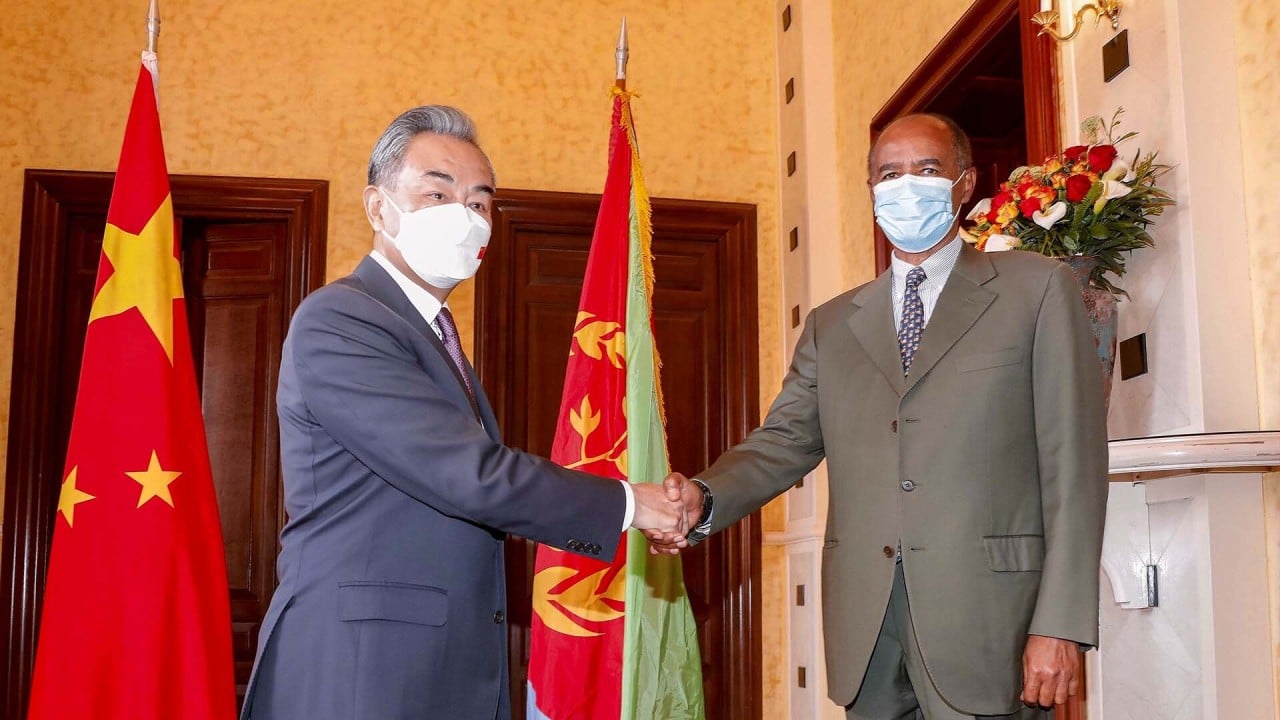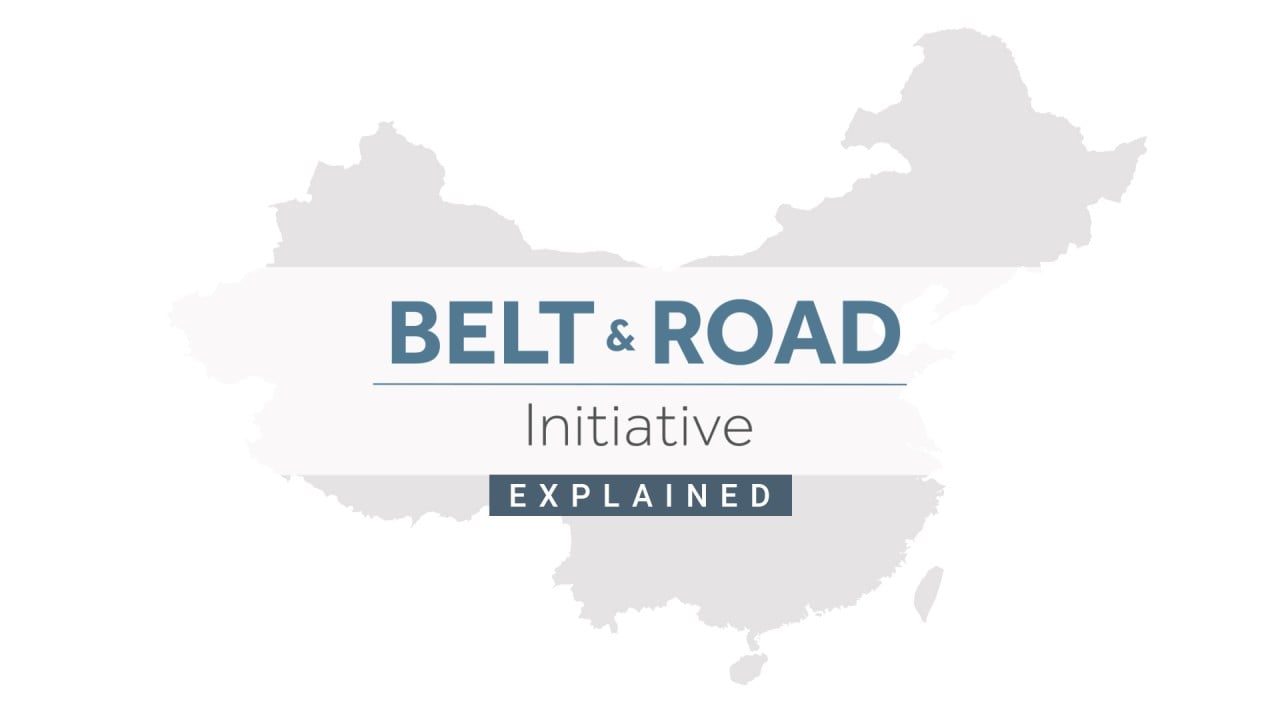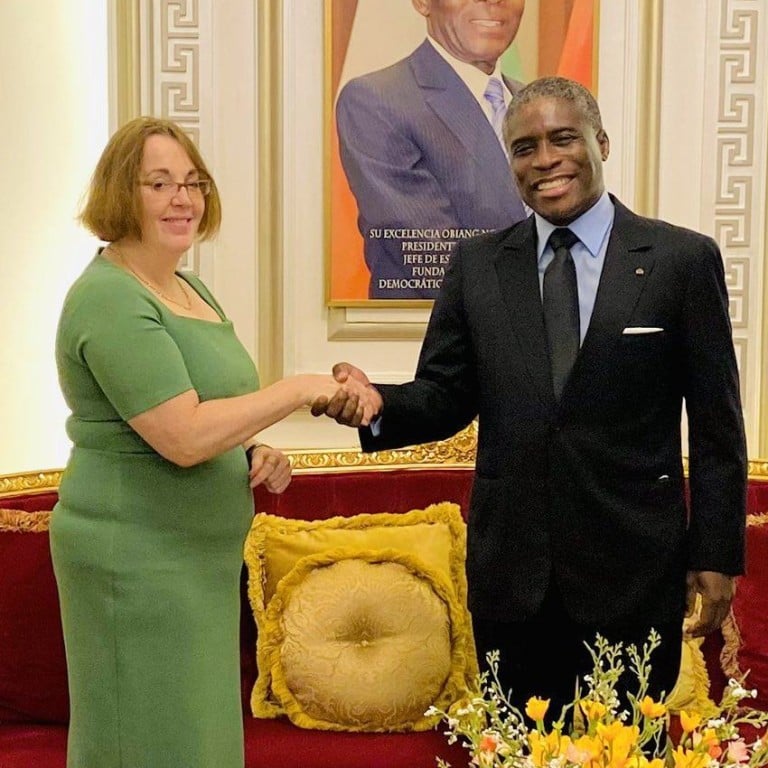
US sends officials to Equatorial Guinea as it tussles with China for influence
- Diplomatic and military officials meet president and vice-president of the Central African country, where China reportedly hopes to build a naval base
- The American delegation spoke of strengthening cooperation in the military sector, Vice-President Teodoro Nguema Obiang Mangue tweets
Senior US diplomatic and military officials have visited Equatorial Guinea, reportedly to convince it to reject China’s plan to build a military base on the Central African nation’s Atlantic Coast.
The Wall Street Journal last week reported that the officials intended to use the trip to persuade Equatorial Guinea against allowing China’s mooted base to proceed.
The vice-president tweeted that the US delegation had talked “about strengthening our cooperation in the military sector”. Another tweet by the US embassy said that the two sides had “exchanged views on maritime security and the importance of keeping the Gulf of Guinea safe”.
The Journal had previously reported in December that China was wooing Equatorial Guinea with the aim of building a naval base in Bata, the country’s biggest city, where China has rebuilt and extended a commercial port. Its article cited classified American intelligence reports and unnamed US officials.
China has yet to respond to those reports, but Vice-President Nguema Obiang tweeted at the time that “China is the model of a friendly nation and a strategic partner, but, for now, there is no agreement”.
US think tank the Centre for Strategic and International Studies (CSIS) said in December that if plans for the base moved ahead, Bata would be the most suitable location for China’s military.
“A Chinese naval base in Bata would build on the sizeable Chinese presence in Equatorial Guinea, marking over five decades of engagement and represented by a large embassy and an equally significant trade mission,” CSIS said in a commentary.
It said that the Export-Import Bank of China had provided the initial funding for the port’s construction by state-owned China Communications Construction Company’s subsidiary in 2014.
Another state-owned enterprise, the China Road and Bridge Corporation, made significant upgrades to the port, CSIS said.
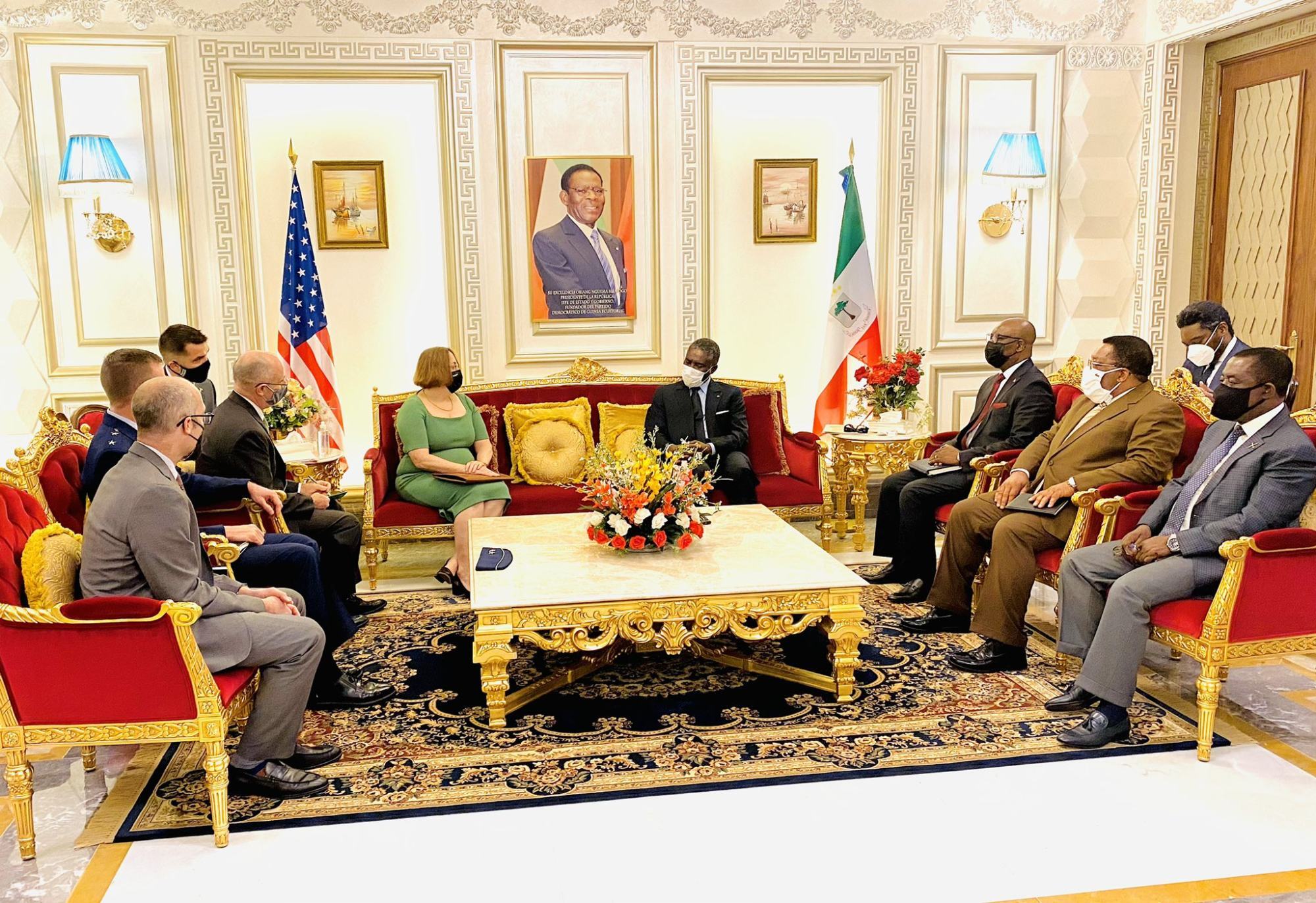
David Shinn, a professor at George Washington University’s Elliott School of International Affairs, said that the US had apparently obtained information that China was interested in establishing a military facility in the African country.
“The US is concerned that China is seeking a military facility in the Atlantic Ocean, as it has in Djibouti for the Indian Ocean region,” Shinn said.
“A Chinese base in Equatorial Guinea would allow Chinese submarines and surface ships to operate with greater ease in the Atlantic Ocean and be a potential threat to US security and shipping interests.”
A Chinese military base on the western side of Africa would have far-reaching geopolitical implications, said Craig Singleton, a China fellow at the Foundation for Defence of Democracies, a national security think tank.
PLA Navy may be closing in on US fleet but it has just one overseas base
“It would provide China with the means to refit and rearm warships in the Atlantic, a capability Beijing currently lacks,” Singleton said. It could also give Chinese companies access to the resource-rich interior of Central Africa via Equatorial Guinea, he said.
He said China’s pursuit of a military base in the region was the culmination of its decades-long investment in Africa. “Economics played the lead role in China’s initial outreach to many African countries,” Singleton said.
As China’s commercial interests in Africa grow, its need to safeguard its citizens and investments appears to be changing security arrangements across the continent, Singleton said.
Equatorial Guinea has attracted attention from both Washington and Beijing. Last year, the country received US officials in January and October.
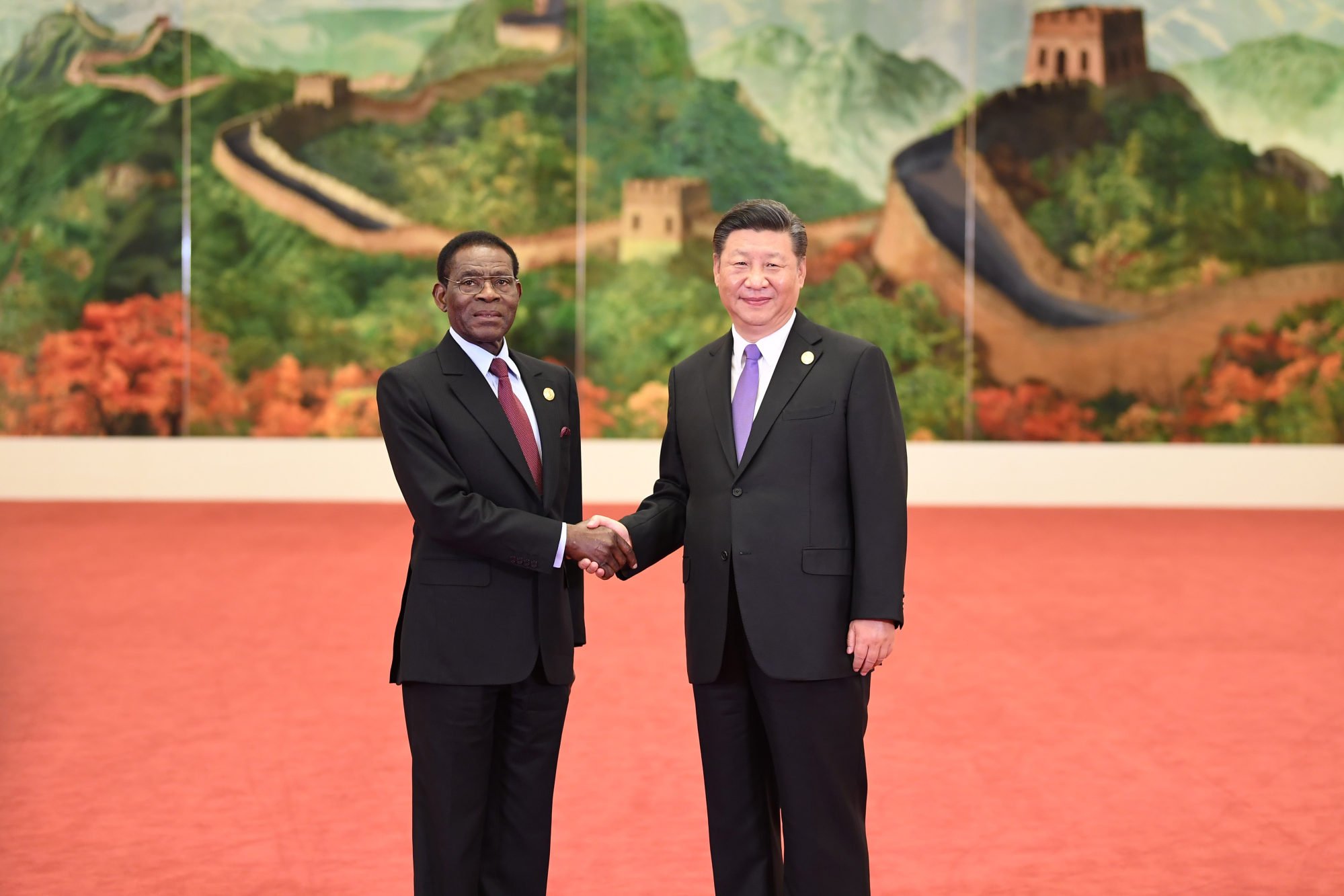
Anthony Tata, performing the duties of US undersecretary of defence for policy, met the president, vice-president, and foreign, defence, national security and health ministers during a stop in Malabo in January 2021. During the trip, Tata shared his views on Chinese and Russian activities in the continent.
“While the United States does not oppose activities that adhere to transparent international standards, concerns are raised when security engagements fall short of international standards, compromise sovereignty or impact our shared security interests,” Tata said at the time.
And when US deputy national security adviser Jon Finer visited Africa in October, Equatorial Guinea was again on the itinerary. Finer met President Obiang and said it was arranged “to discuss ways to enhance maritime security and end the Covid-19 pandemic”.
That same month, Chinese President Xi Jinping spoke to his counterpart Obiang, saying China would “expand cooperation in various fields within the framework of the Belt and Road Initiative”.
China ends funding for belt and road coal plants in line with Xi’s pledge
The following month, the Chinese and Equatoguinean foreign ministers, respectively Wang Yi and Simeon Oyono Esono Angue, met on the sidelines of the Forum on China-Africa Cooperation in Dakar.
In December, Pentagon spokesman John Kirby said that the US had told Equatorial Guinea that “certain potential steps involving [China], and [China’s] activity there, would raise national security concerns for us”.
“In Africa, they [China] continue to try to coerce behaviour out of many African nations and try to intimidate, use economic leverage to seek their own national security goals there,” Kirby said.
Besides being the third-largest oil producer in Sub-Saharan Africa, Equatorial Guinea is also among the leading sources of bauxite ore, the primary material in aluminium production, according to John Calabrese, head of the Middle East-Asia Project at American University in Washington.
Calabrese said that the Central African nation, home to just 1.4 million people, was also one of the most extreme examples of wealth and repression – an ideal candidate to help China diversify and meet its energy needs with little or no political accountability on the supply side.
“Of course, the kleptocratic state has additional malign suitors, including Russian and Venezuelan enterprises, seeking to do business in offshore mining,” Calabrese said.
He said that the port of Bata was well positioned and could be expanded, as happened with Chinese input in Pakistan’s Gwadar and other ports in the United Arab Emirates, Oman and Saudi Arabia.
“Chinese engagement in port expansion in those locales, and others in the Mediterranean, have sparked concern that they could be part of an elaborate strategy to develop dual-use facilities that eventually the Chinese navy might gain access to,” Calabrese said.
He said that the visit to Malabo by American officials “looks to me as though it is part of a much broader effort by the US government to forestall any such efforts on China’s part”.
As US-China rivalry heats up, it is conceivable that China’s People’s Liberation Army will look for “pressure points”, Calabrese said. “Naval access on Africa’s western coast would give it a window onto the Atlantic – just as the US, in a far more muscular and forward-leaning manner, is positioned in the western Pacific.”
China set up its first overseas military base in Djibouti in 2017, near the entrance of the Red Sea. The facility continues to cause unease in Washington.
The naval base is about 12km (7.5 miles) from Camp Lemonnier, the US military base in Djibouti that houses 3,400 personnel – about half of the military staff in the US Africa Command. China has between 1,000 and 2,000 navy personnel at its base, according to reports.


